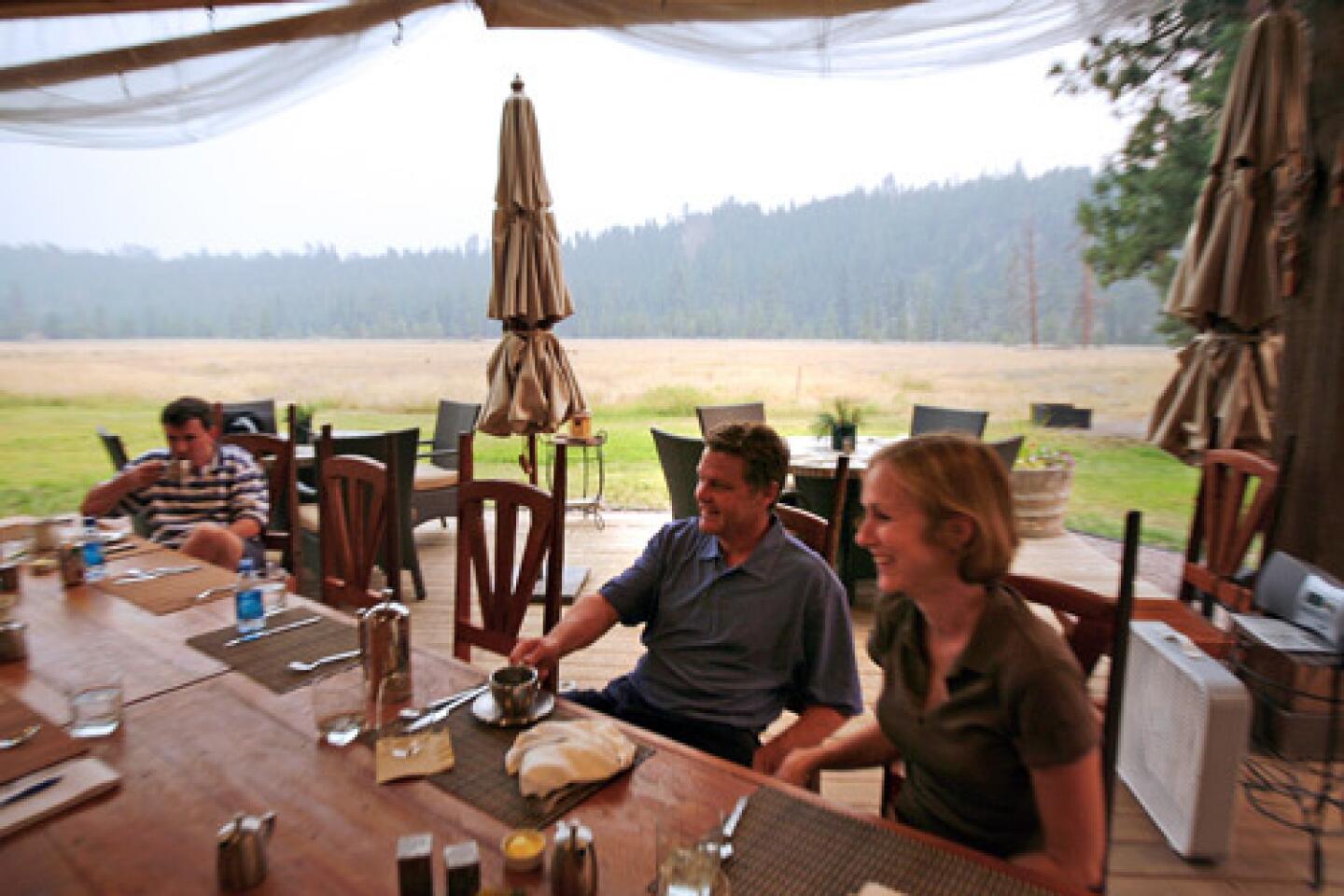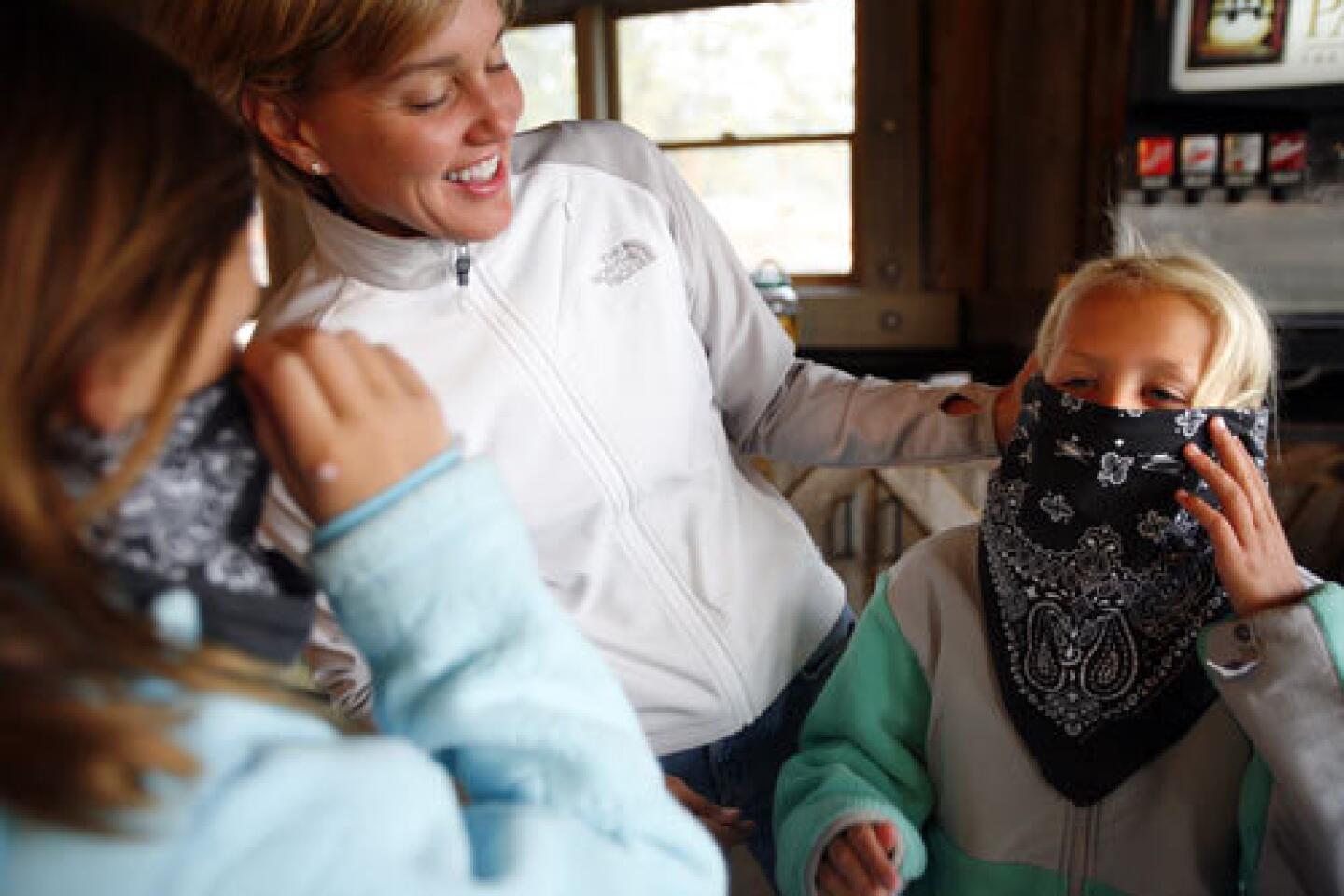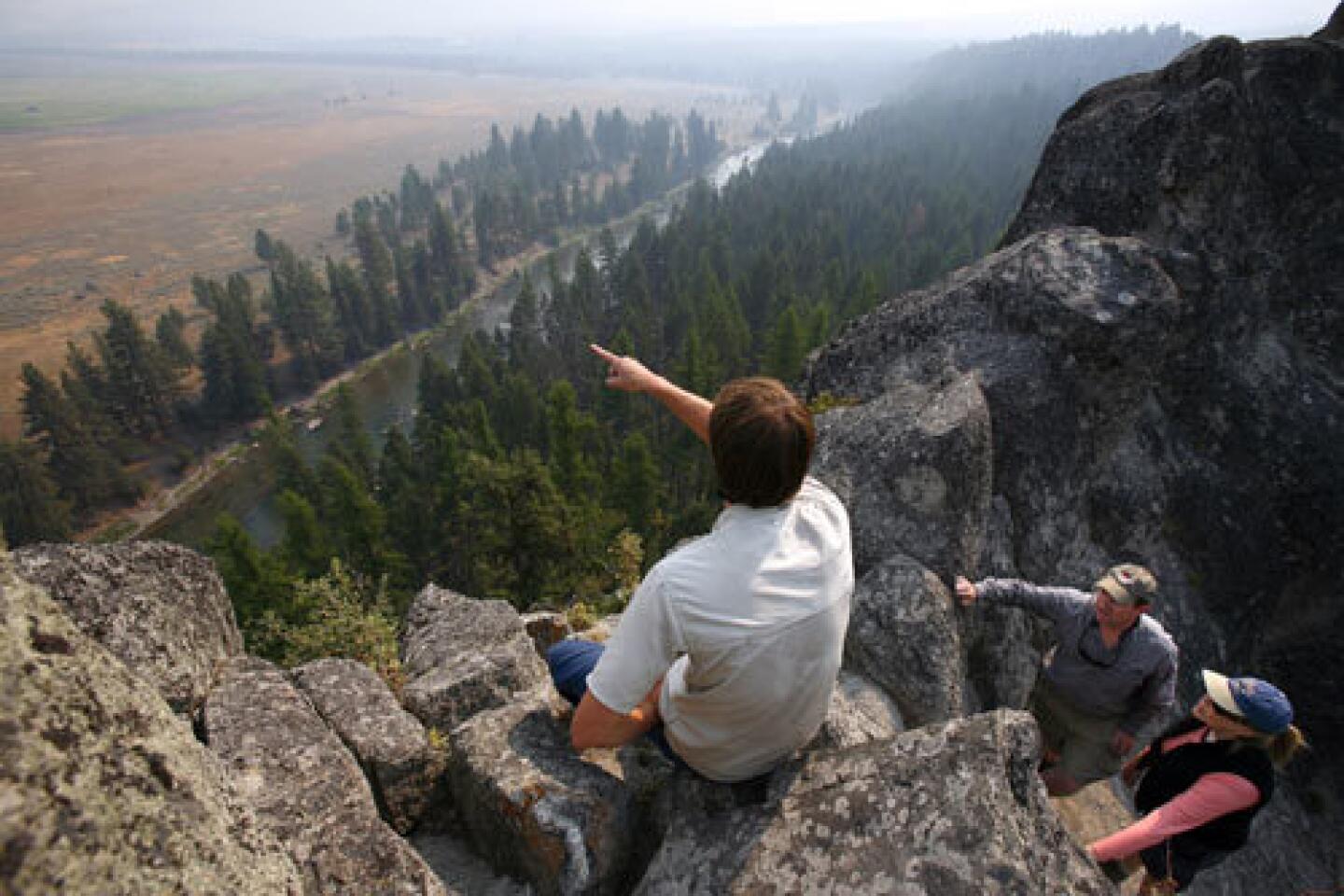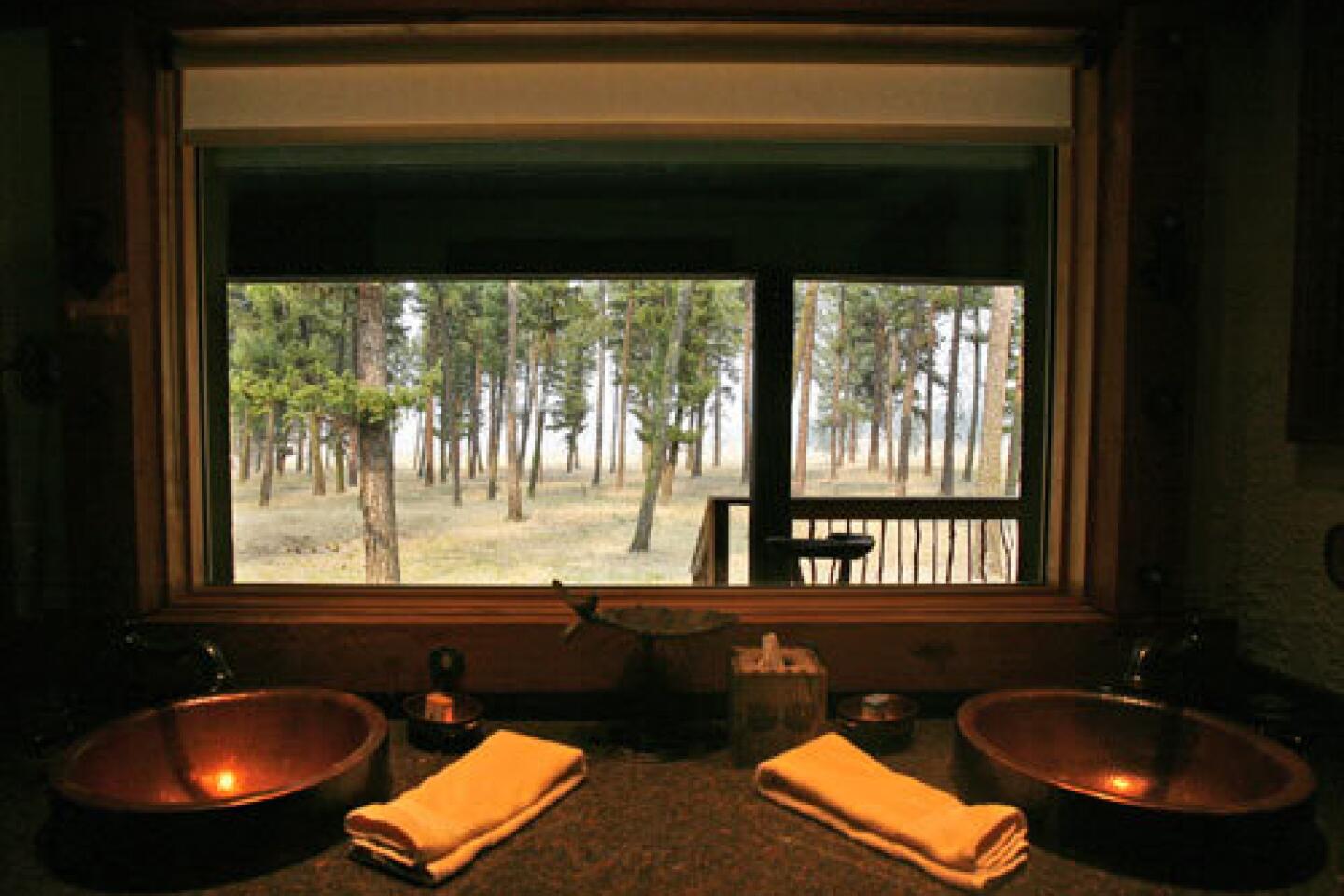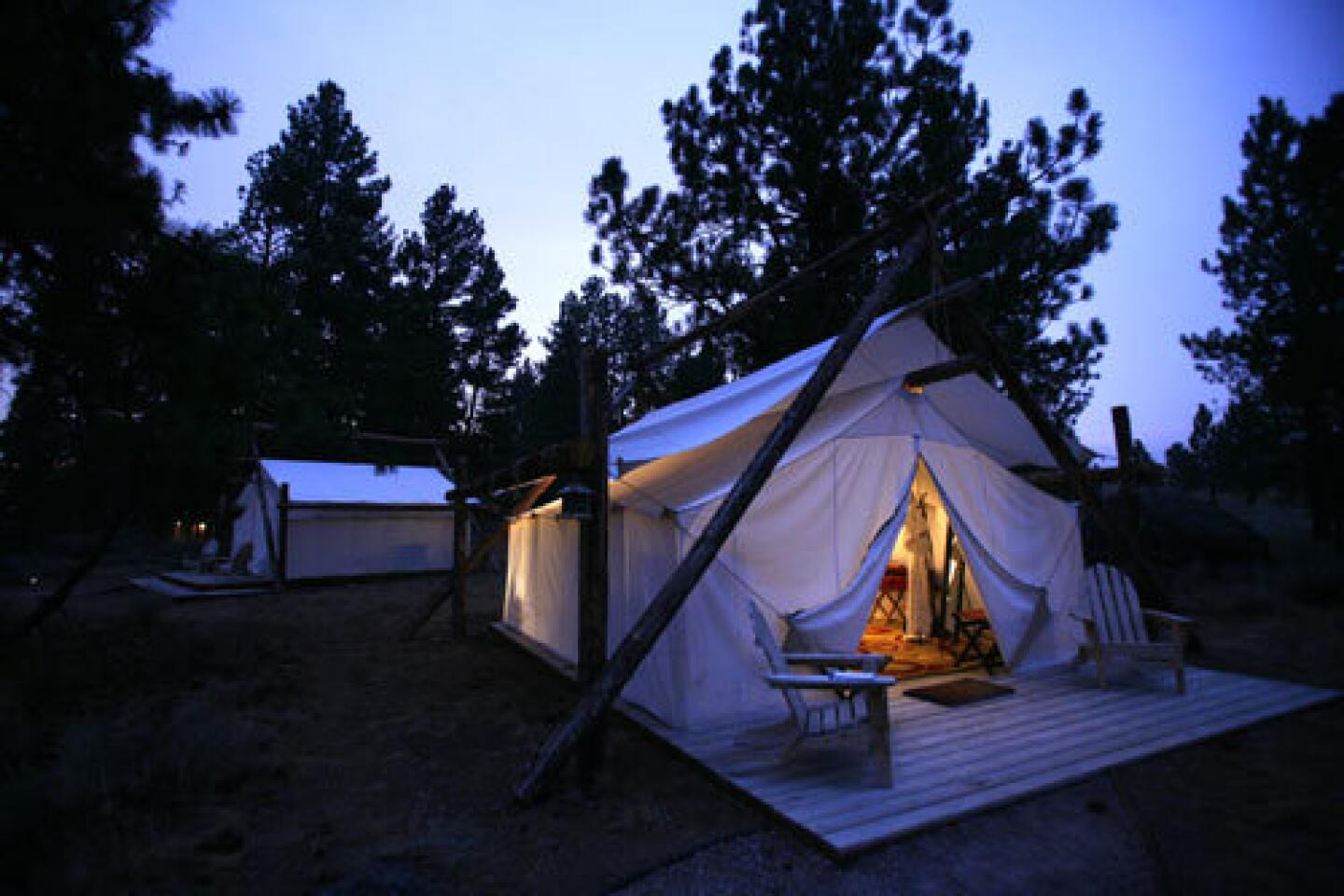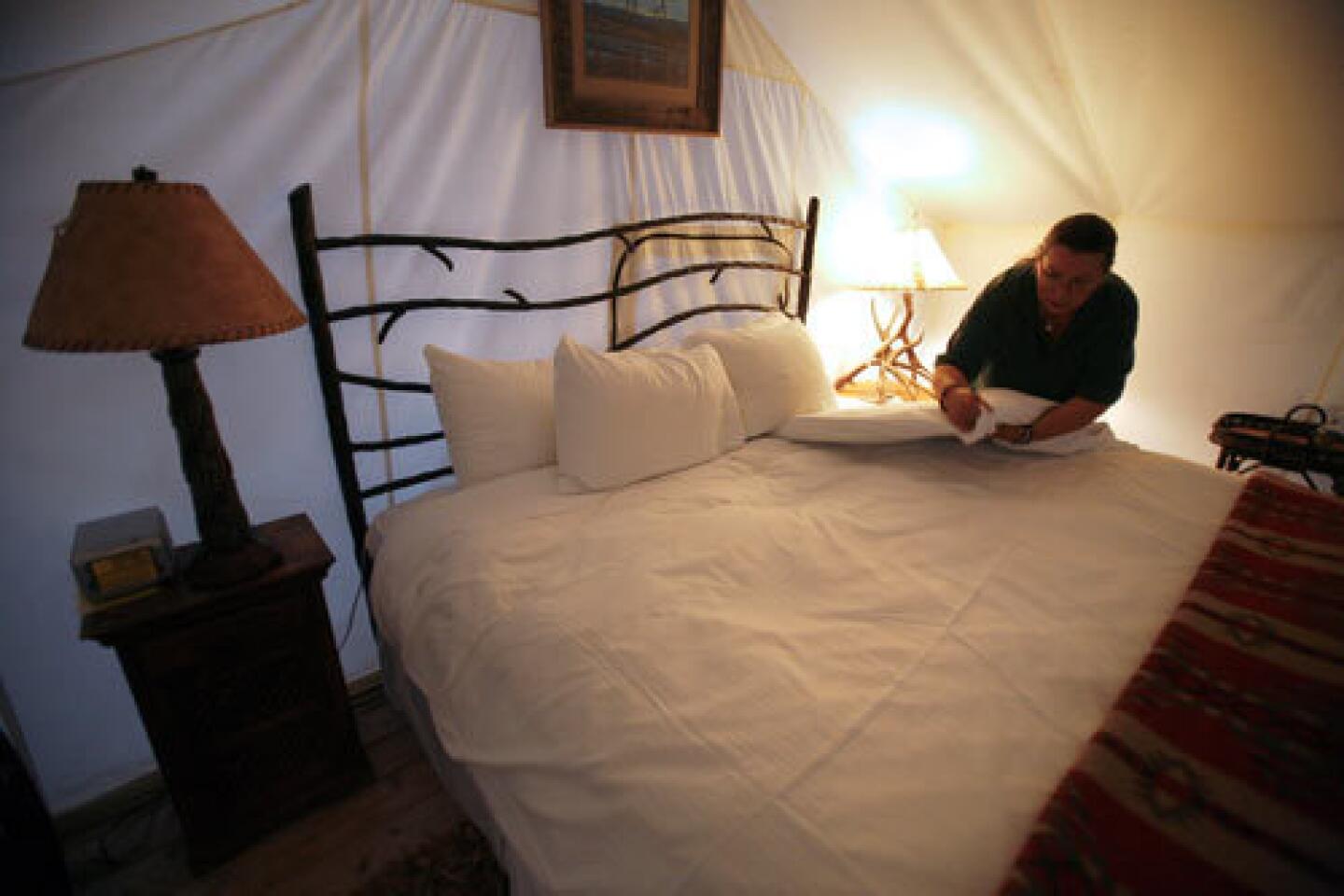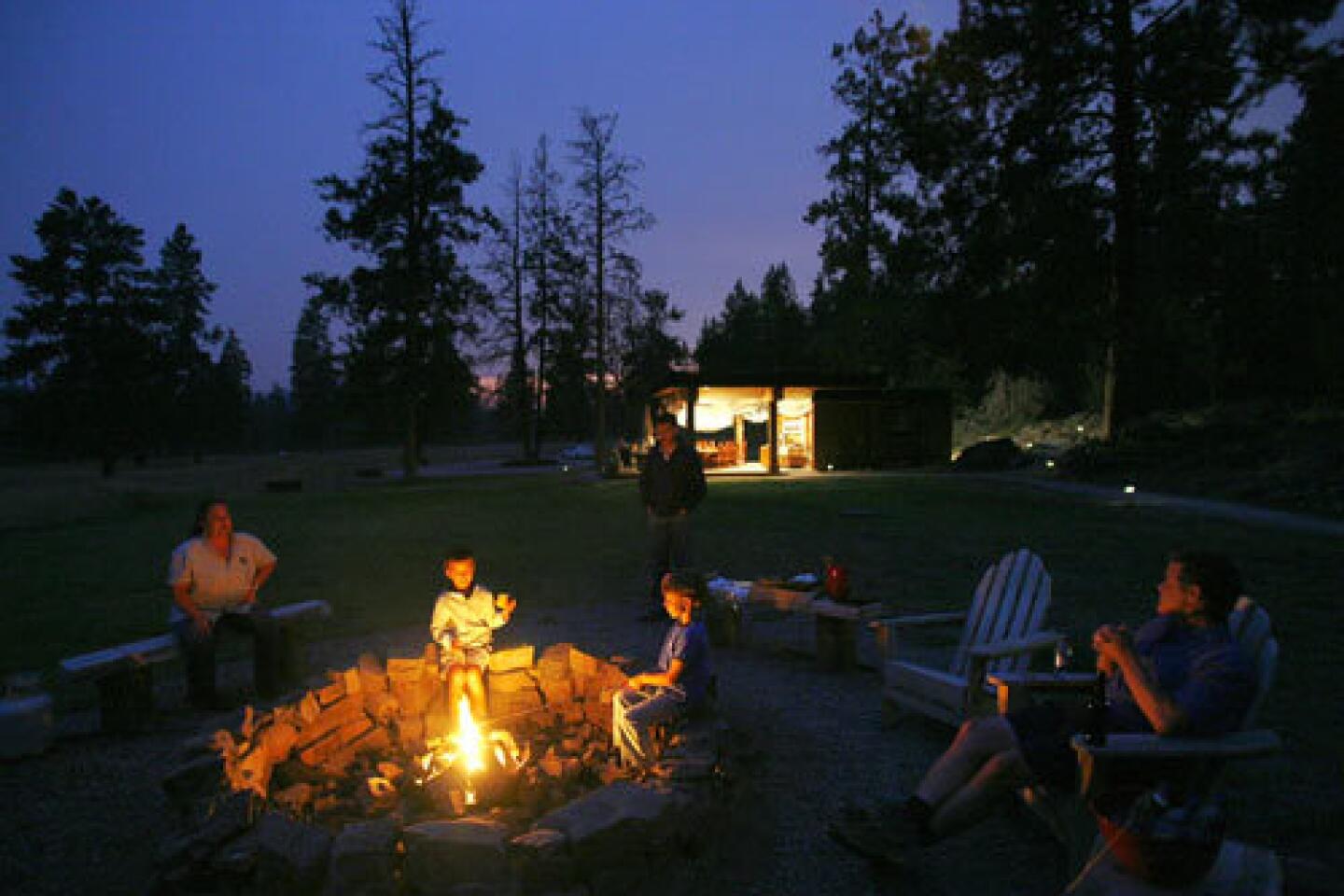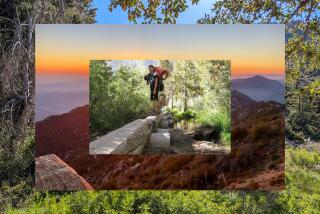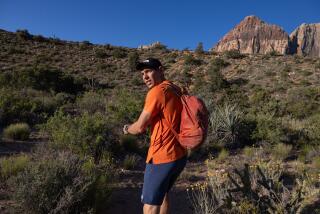Say, has the butler cleaned the trout yet?
GREENOUGH, MONT. — When 6-year-old Ethan Bondick told his mom and dad he wanted to go fly-fishing in Montana, his well-heeled parents were stumped.
“We looked at each other and said, ‘Oh, god, now what?’ ” said Gigi Bondick, 37, a “reformed” attorney whose husband works as a private-equity partner in Massachusetts.
“We’re just not the camping kind of people. We don’t pitch tents. We don’t cook outdoors. We don’t share a bathroom. It’s just not going to happen. This is a kid who has never flown anything but first class or stayed anywhere other than a Four Seasons.”
After typing “luxury” into a Google search along with “camping” and “Montana,” the couple settled on The Resort at Paws Up, a 37,000-acre getaway in the heart of Big Sky country. It’s a place for affluent travelers who want to enjoy the outdoors but can’t fathom using a smelly outhouse, a place where paying someone to light the campfire is a badge of honor, not the mark of a Boy Scout flunky.
The Bondicks, who live in a sprawling home on the edge of a state park outside Boston and hire a personal chef at home, shelled out $595 a night -- plus an additional $110 per person per day for food.
It’s a hefty price to sleep in a tent, but the perks include a camp butler to build their fire, a maid to crank up the heated down comforter at nightfall and a cook to whip up bison rib-eye for dinner and French toast topped with huckleberries for breakfast.
The number of visits to U.S. national parks is declining, but “glamping” -- glamorous camping -- is on the rise in North America after gaining popularity among wealthy travelers in Africa and England, where luxury tents come with Persian rugs and electricity to power blow dryers.
Resorts like Paws Up that expand on the dude ranch concept are reporting increased bookings, another signal that luxury travel remains one of the strongest and fastest-growing segments of the tourism industry.
Every year since it opened in 2005, Paws Up has charged more to keep up with high demand and sold-out nights. Next year, it will double its number of tents -- from six to 12 -- and add 10 mountain homes to its collection of 18. Occupancy this year is up more than 40%.
At Clayoquot Wilderness Resort in British Columbia, accessible by private seaplane from Vancouver, bookings have doubled year over year since it opened in 2000. At the start, the resort erected only five tents as an experiment to see if the luxury camping concept would catch hold. It did, and today there are 20.
“It’s not the traditional kind of camping,” concedes Clayoquot’s Sue Bosdet. “We say it’s like camping for big kids.”
At Paws Up, those who can’t hack the tent can upgrade to luxury mountain homes with hot tubs for up to $3,460 a night. There’s also a gourmet restaurant, Pomp, where the ever-changing menu recently offered broiled brown butter Alaskan halibut cheeks and other dishes more likely to be served at a Michelin-rated New York restaurant.
Most visitors to Paws Up hail from California, New York and Florida. Just about every week, someone arrives on a private jet. The Rolling Stones once took over the place, and high-powered Hollywood types are always dropping in.
The guests “only sorta kinda want to rough it,” said Paws Up General Manager Terre Short, who joked that when some of the kids go back to school after summer vacation, they’ll have an entirely different notion of camping than their classmates.
Of course, these children are of a slightly different breed, proving that you can take the kid out of the city but not the reverse.
Ethan Bondick, who watches his father buy and sell businesses, decided after a few days that he no longer wanted camp butler Mark Duggan serving up the s’mores.
Instead, the first-grader declared that he had started his own s’mores business and hungry glampers should fork over $10 for each marshmallowy dessert. When his dad balked, noting that he was paying the vacation tab, Ethan negotiated down to $3.
Ethan and 5-year-old Jack Davis, his new best pal, also built what they called a “Man vs. Wild” animal shelter with fallen logs. By the next morning, the duo had taped a hand-scrawled sign to the fort: “Animal Center. Take’z 5$ to get in.”
“It’s not about experiencing what Lewis and Clark did,” said Milton Pedrazza, chief executive of Luxury Institute, a New York-based research company. “It’s about enjoying nature and all the comforts that come with the luxury lifestyle. They see it as one big seamless, wonderful experience.”
Peter Yesawich, chairman of the travel marketing services firm Ypartnership, said affluent travelers whose household income is more than $150,000 are interested in “soft adventure.”
“It’s kind of an interesting psychology,” Yesawich said. “They might like hiking and white-water rafting or trekking, but they want to return to white linens and fine Cabernet.”
Beyond that, they’re also getting nature on demand.
When the Bondicks went fly-fishing on the Blackfoot River, for example, they caught 20 trout -- after a guide expertly navigated them to a great fishing spot, taught them how to cast and selected the perfect flies.
Rhyne and Lisa Davis and their son, Jack, saw a herd of more than 350 elk. But it wasn’t serendipity rounding a bend on a nature hike. Duggan, the butler, sent a scout ahead to track the animals on the sprawling property, then drove the family directly to the spot.
And on one hike, Paws Up guides dropped Rob and Alison John off at a trail head, then picked them up at a designated spot -- allowing them to enjoy the most scenic part of the three-mile hike without having to hoof it past the same view twice.
“We need to make the camping experience real and unreal at the same time,” Duggan said.
Back at the tents, the only thing remotely resembling the hassles of camping -- not counting the ground squirrels scampering by and the bald eagles soaring overhead -- is venturing outside the tent to the bathroom in the middle of the night.
Even then, it’s not all that realistic, said Rhyne Davis, 42, whose family owns a North Carolina-based coffee roasting business that serves chains like McDonald’s and Dunkin’ Donuts. “You get out in the cold to go to your four-star bathroom,” he chuckled.
The bathhouses, a short walk from the tents, have heated slate floors, a rain-forest shower big enough for two, granite countertops and artisan mountain sage soap.
But even that is too much roughing it for some families. After two nights, David Blake, 46, of Boston and his family abandoned their tent in favor of more luxurious digs: a 1,440-square-foot timbered home on four acres.
After one night in his new house, Blake told former fellow tent camper Greg Bondick: “We’re not going back.”
“Traitor!” Bondick retorted.
The Davis family planned to follow suit. “We thought after three nights, we’d be ready for a little hot tub,” Rhyne Davis said.
There is no shame here. True campers might scoff at the notion of sleeping on a pillow-top mattress in a heated tent with artwork on the walls, but glampers relish the luxury.
“It’s OK to be spoiled, it really is,” Gigi Bondick said. “It’s nature on a silver platter.”
More to Read
Sign up for The Wild
We’ll help you find the best places to hike, bike and run, as well as the perfect silent spots for meditation and yoga.
You may occasionally receive promotional content from the Los Angeles Times.
